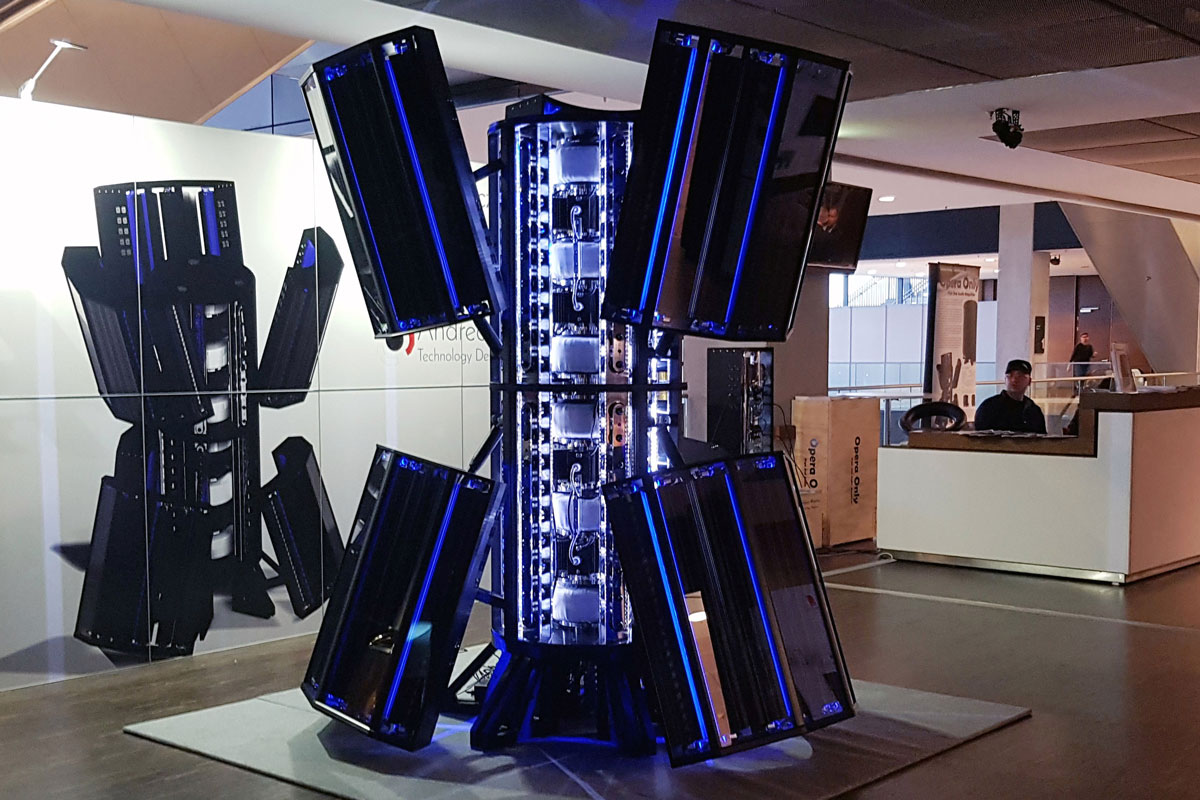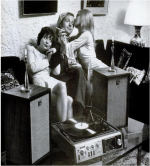oh so we have changed focus from how much presumptive customers are willing to splurge on hiend gears onto how much we can charge for a piece of whatever.. ok I take the challenge and it will go like this, I will sneak in to a construction past midnight and collect a few scrap planks for my wooden grounding box, take a dump in it and connect the monster mamba cables purchased on Aliexpress, wrap it in faux gold foil and call it The Surprise and charge some astronomical amount of money, I guess I can now rest on my laurels and call it a day, now where is my beer and popcorn?
But honestly, yes there are collectors of art and rare cars etc speculating on cashing in in the future, but on audio gears, does anyone know, at least I wasn't aware of that but my baseless guess it's a far smaller niche.
But honestly, yes there are collectors of art and rare cars etc speculating on cashing in in the future, but on audio gears, does anyone know, at least I wasn't aware of that but my baseless guess it's a far smaller niche.
Yes, it is a small niche.
For some people the most important thing is to have something that nobody else has.
For some people the most important thing is to have something that nobody else has.
For some people the most important thing is to have something that nobody else has.
Too many IMO. Such a meaningless empty gesture.
I don't think that these were necessarily designed as a product. Sure there may be a few people who buy them "because it's cool", but I've always interpreted this kind of thing as an crazy engineer's pet project. You know, the thing they've always wanted to build, and now they finally have the resources.
For example, I've always wanted to build a 700 WPC Class A amplifier. A 2U "amplifier" box, which is liquid-cooled, with a separate power supply and heat exchanger box. It'd cost a fortune, but some day if I have the resources I WILL build one. If I were the owner of a boutique audio company that was financially successful enough to do so, I'd definitely make it and make it a product. Sure we might only sell one or two, but that's not what it's about.
For example, I've always wanted to build a 700 WPC Class A amplifier. A 2U "amplifier" box, which is liquid-cooled, with a separate power supply and heat exchanger box. It'd cost a fortune, but some day if I have the resources I WILL build one. If I were the owner of a boutique audio company that was financially successful enough to do so, I'd definitely make it and make it a product. Sure we might only sell one or two, but that's not what it's about.
If someone can afford #1 on that list, I'm sure they can afford a rocket to launch it into the orbit to do its job.

If you don't detect a difference, they'll say you need to upgrade your hearing.If we accept that speakers are by far a weak link in the chain, I would love to see DBTs of the amps with the best speakers available.
And the best part is that there's a good chance that some of the amplifiers on that list will perform worse than a Bryston or an MC2 amplifier.
That said, there are people who say that it's worthless because "all good amplifiers sound the same". Personally, I can hear a difference between *some* amplifiers, but most sound pretty similar to me. That said, I also know people who can discern things that most cannot.
We know everyone's ears are different. That's genetics / biology / stuff I barely understand. What would be really, really interesting is to get a better idea of the real dynamic range of different people's ears. I don't know how you'd test that, but boy would it be interesting.
Hearing range is another interesting thing. I won't give my exact age, but I am the same age as most of my undergraduate classmates. I can hear out to around 18 kHz. I remember doing some testing on a PWM design in the lab at school. The switching frequency was at 23 kHz. I sure couldn't hear it. Two other people came in to see what I was working on. One of them was a girl, similar age to myself and of a mechanical engineering background. She had absolutely no idea what I was testing, but immediately commented about an "annoying high-pitched whine". When I varied the frequency, she couldn't hear it beyond about 24 kHz. That's still way higher than I would have expected.
As a shocking contrast, one guy who was big into guns couldn't hear above 6500 Hz. He's also someone who thinks he's "too manly" for hearing protection. Also surprising, however, is that he didn't seem to be hearing impaired from the perspective of communication.
So the point I'm making is that it isn't inconceivable that some small group of people could perhaps hear a difference, even in a double-blind test.
Furthermore, there's one area that I think double-blind testing gets wrong, and that's duration. IMO, an important part of evaluating equipment is to actually use it for a while. Sometimes I find that equipment fairs well in traditional testing, but after a while starts to annoy me. I've had numerous instances where I couldn't "hear a difference" in an A/B test, but after a couple of days or weeks I found one or the other to get on my nerves. Could I pinpoint the difference? Not really, but just because I can't pinpoint a difference doesn't mean that I can't notice it, either consciously or subconsciously.
So the real point I'm making is that we understand (or at least, we think we understand that is) audio reproduction really well, but I don't necessarily think that how our ears work and hour our brains process sound perceptions is quite as well understood.
So I'm reasonably confident that such high-priced equipment is a load of BS, but there is also some level of uncertainty in that statement.
That said, there are people who say that it's worthless because "all good amplifiers sound the same". Personally, I can hear a difference between *some* amplifiers, but most sound pretty similar to me. That said, I also know people who can discern things that most cannot.
We know everyone's ears are different. That's genetics / biology / stuff I barely understand. What would be really, really interesting is to get a better idea of the real dynamic range of different people's ears. I don't know how you'd test that, but boy would it be interesting.
Hearing range is another interesting thing. I won't give my exact age, but I am the same age as most of my undergraduate classmates. I can hear out to around 18 kHz. I remember doing some testing on a PWM design in the lab at school. The switching frequency was at 23 kHz. I sure couldn't hear it. Two other people came in to see what I was working on. One of them was a girl, similar age to myself and of a mechanical engineering background. She had absolutely no idea what I was testing, but immediately commented about an "annoying high-pitched whine". When I varied the frequency, she couldn't hear it beyond about 24 kHz. That's still way higher than I would have expected.
As a shocking contrast, one guy who was big into guns couldn't hear above 6500 Hz. He's also someone who thinks he's "too manly" for hearing protection. Also surprising, however, is that he didn't seem to be hearing impaired from the perspective of communication.
So the point I'm making is that it isn't inconceivable that some small group of people could perhaps hear a difference, even in a double-blind test.
Furthermore, there's one area that I think double-blind testing gets wrong, and that's duration. IMO, an important part of evaluating equipment is to actually use it for a while. Sometimes I find that equipment fairs well in traditional testing, but after a while starts to annoy me. I've had numerous instances where I couldn't "hear a difference" in an A/B test, but after a couple of days or weeks I found one or the other to get on my nerves. Could I pinpoint the difference? Not really, but just because I can't pinpoint a difference doesn't mean that I can't notice it, either consciously or subconsciously.
So the real point I'm making is that we understand (or at least, we think we understand that is) audio reproduction really well, but I don't necessarily think that how our ears work and hour our brains process sound perceptions is quite as well understood.
So I'm reasonably confident that such high-priced equipment is a load of BS, but there is also some level of uncertainty in that statement.
This is not about audio, just like a Lamborghini is not about transportation.
Open your mind,
Jan
Open your mind,
Jan
But a Lamborghini could get you a girlfriend, I don't think a hi fi could do that. I'm not sure it would get you the right type of girlfriend though.
What constitutes good amplifier?That said, there are people who say that it's worthless because "all good amplifiers sound the same".
In level matched double blind listening?Personally, I can hear a difference between *some* amplifiers, but most sound pretty similar to me. That said, I also know people who can discern things that most cannot.
First, you would have to find out if there are people who reached close to such achievement. Then it may be considered as conceivable. Have you found such people?So the point I'm making is that it isn't inconceivable that some small group of people could perhaps hear a difference, even in a double-blind test.
How long was the duration of double blind listening test that you are aware of?Furthermore, there's one area that I think double-blind testing gets wrong, and that's duration. IMO, an important part of evaluating equipment is to actually use it for a while. Sometimes I find that equipment fairs well in traditional testing, but after a while starts to annoy me. I've had numerous instances where I couldn't "hear a difference" in an A/B test, but after a couple of days or weeks I found one or the other to get on my nerves. Could I pinpoint the difference? Not really, but just because I can't pinpoint a difference doesn't mean that I can't notice it, either consciously or subconsciously.
How long have you been researching on the subject of our brain processing audio perception when it comes to reproduced sound?So the real point I'm making is that we understand (or at least, we think we understand that is) audio reproduction really well, but I don't necessarily think that how our ears work and hour our brains process sound perceptions is quite as well understood.
Are you aware of the term "FUD"? It's often spread by marketeers, especially those who sell high end audio electronics. The letter "U" stands for uncertainty.So I'm reasonably confident that such high-priced equipment is a load of BS, but there is also some level of uncertainty in that statement.
Over the decades in between these hifi-towers as well as the girls may have lost of their attraction
- Home
- Member Areas
- The Lounge
- No Bottom Line - Perversity - In Audio

